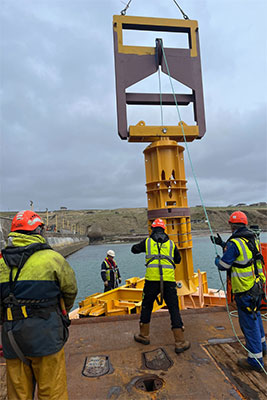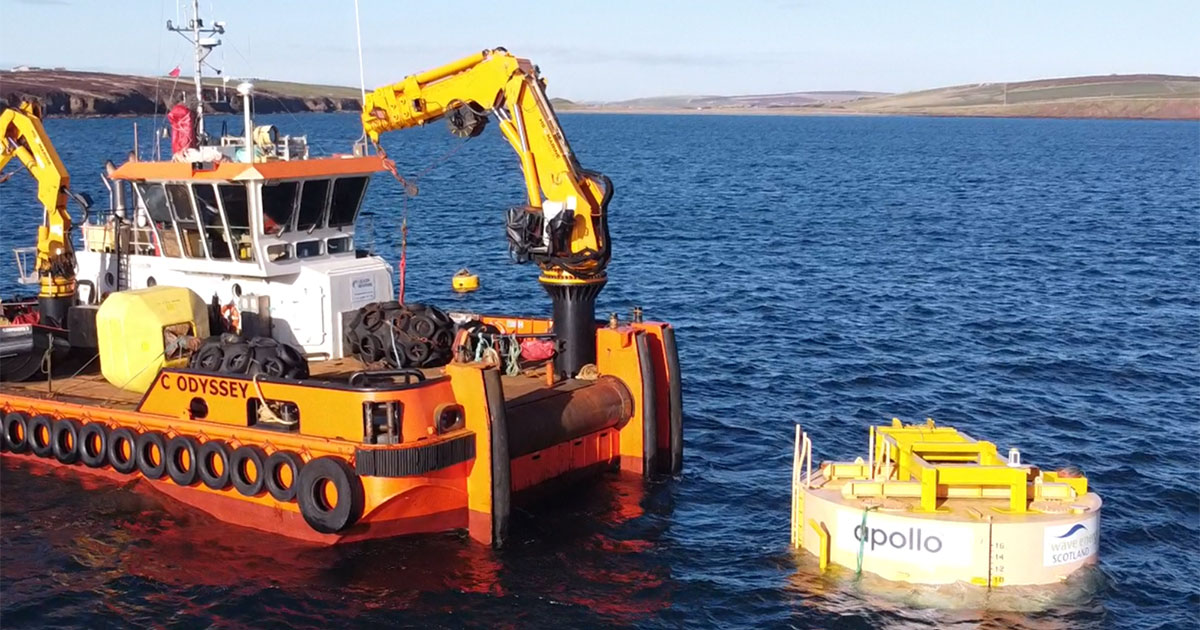Apollo, a leading engineering and energy advisory consultancy, has reported the successful trial of the PALM Quick Connection System (QCS) for floating offshore renewables. The trials, which took place from the end of March to the end of May this year in Orkney, demonstrated the robust capabilities of the system in real sea conditions.
Developed through the Wave Energy Scotland (WES) Quick Connection Systems program and with support from the Offshore Wind Growth Partnership, the PALM QCS is designed to streamline the efficient hook-up and disconnection of cables and/or moorings for floating offshore renewable devices. This system reduces operational costs significantly by enabling quick connections via the winching action of a conventional tow tug, thereby avoiding the need to tow devices to port for maintenance—a process that can be costly in terms of marine spread and lost generation time. The system allows connection and disconnection in higher sea states and removes the need for connections to be carried out on deck.
The PALM QCS is a mechanical system that can also incorporate electrical wet mate connectors bringing both together using the winching action alone. During the recent trials in Orkney, the system withstood severe weather conditions, including Storm Kathleen, and demonstrated its robustness through multiple connect and disconnect operations.

PALM QCS trial. (Image credit: Apollo)
Apollo's Offshore Renewables Director Nigel Robinson stated: "The successful trial of the PALM QCS in Orkney is not just a milestone for Apollo, but a testament to the powerful collaborations that drive our industry forward. We are grateful to Wave Energy Scotland, through which the PALM QCS™ was conceived and developed. Their ongoing support is vital to our success. Equally, our thanks go to Leask Marine, who were essential as our marine contractor, and to the numerous local supply chain companies whose contributions were crucial. This trial showcases what we can achieve together to advance the future of offshore renewable energy, and we look forward to continuing these collaborative efforts in the future."
Managing Director of Wave Energy Scotland, Tim Hurst added: “It is reassuring to see the PALM perform exactly as Apollo hoped, including its capabilities in challenging weather conditions. Quick connection technologies are an exciting enabling development for offshore marine renewables and WES looks forward to seeing Apollo continue to develop their technology and collaborate further within the marine renewables sector.”
The successful trial of the PALM QCS demonstrates Apollo's continued leadership in developing innovative solutions for the offshore renewables sector. With this technology, Apollo is set to support the industry's growth, particularly in the Floating Offshore Wind sector, as it scales up with ScotWind and the Celtic Sea developments.


